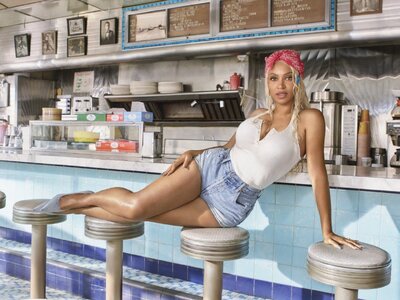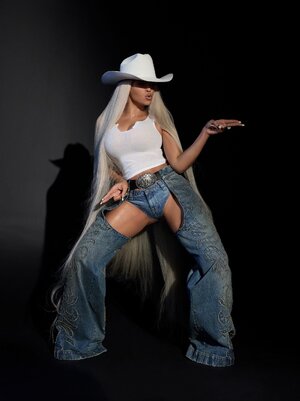While I agree any association to eugenics is s stretch and bordering conspiracy theory,
OK, we need to sort a few things out here.
A. Critiquing a cultural production as racist or sexist or colonial is not a conspiracy theory. There's rarely a claim that the racism was intended. Rather, the idea is that the images or texts are filtered by a culture that has long operated on the basis of demeaning stereotypes and concepts.
Take, for example, the film The Gods Must Be Crazy. That film has been criticized heavily -- especially in Africa -- for its "noble savage" portrayal of black people, and the San people (i.e. bushmen). I do not think the filmmaker was trying to make a demeaning film. I think he saw his film as anti-racist in some fashion. It's just that he didn't have a great understanding of other, non-white viewpoints.
Or take the well-chronicled Hollywood depiction of black people in the 1980s. Die Hard is an amazing film, but the character of Argyle is practically a minstrel show. I suppose the film does get some credit for casting a black man as the computer hacker and not the guy who just cuts shit with chain saws, but in any case, again I don't think that the filmmakers were trying to insult black people. They probably saw the character as funny. To white people.
Did George Lucas intend Jar Jar Binks or Dexter Jettser to be blatantly demeaning racial stereotypes? I doubt it. I just think he was clueless.
2. There's a reason that our mass culture is segregated and color-coded. TV shows are rarely integrated. Usually the cast is almost all black (e.g. Cosby, Fresh Prince, plus countless less famous shows like Bernie Mac) or essentially all white (e.g Friends, Seinfeld, Frasier, Cheers). On occasion we get shows like The Good Place that are truly multi-cultural, but The Good Place never got great ratings. Law and Order (the original, I've not seen the spinoffs) always tried to feature at least one black person but after the first couple of seasons, they were always on the "police" side of things.
It's the same logic as "there goes the neighborhood." There's a part of the audience that doesn't really want to see black people, or at least doesn't want to see integration. That inhibition might be conscious, but more commonly it's not. It's just that they find themselves laughing less or being less moved by the integrated show for whatever reason. But anyway, once you've cast an important black character, you've lost part of that audience and now your path to success is to reach the audience that does want to see black people -- usually black audiences, who don't mind at all seeing a black cast because it means the show is probably set in a neighborhood or area familiar to black people.
No conspiracy theory needed. Hollywood didn't portray black and Asian people as villains or stooges in the 80s and 90s especially because they wanted to present white people as triumphant (except in a few cases). It was more like, people were used to thinking of terrorists as Arab, or black people as thugs. Of course Mr. T had to play the villain in the Rocky series -- there was no way America would accept him as a hero. It was a minor miracle that he was featured on the A-Team, but there of course he was mostly comic relief.


